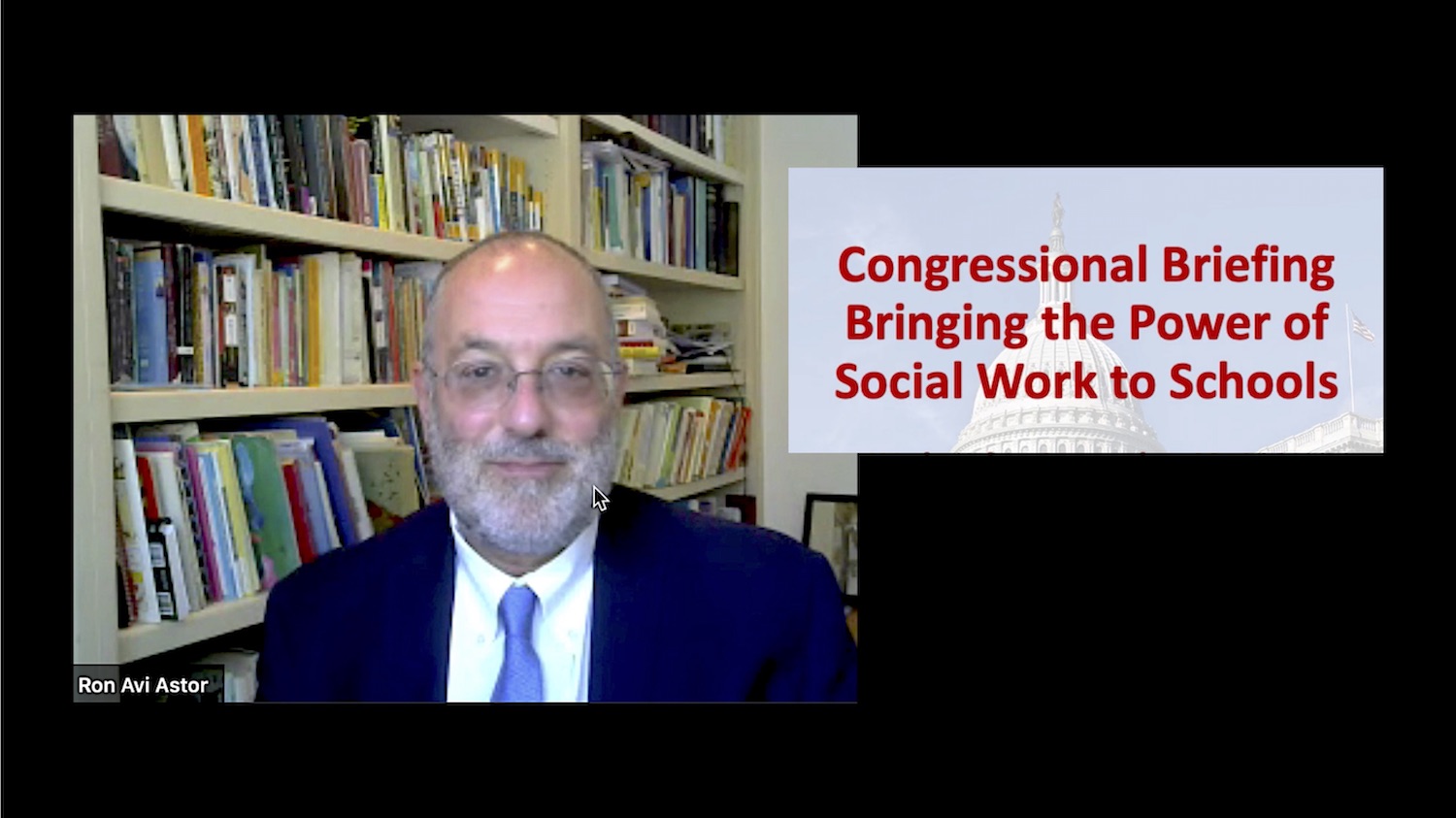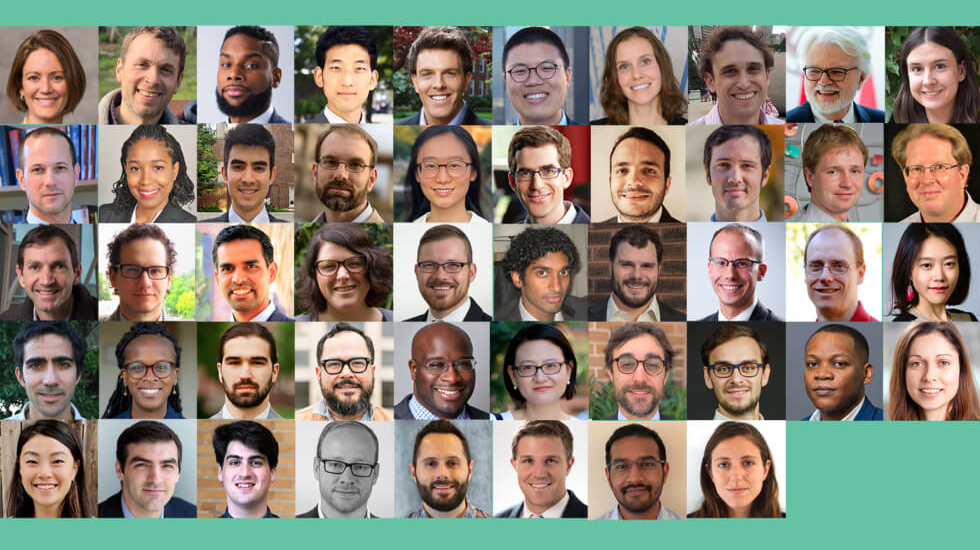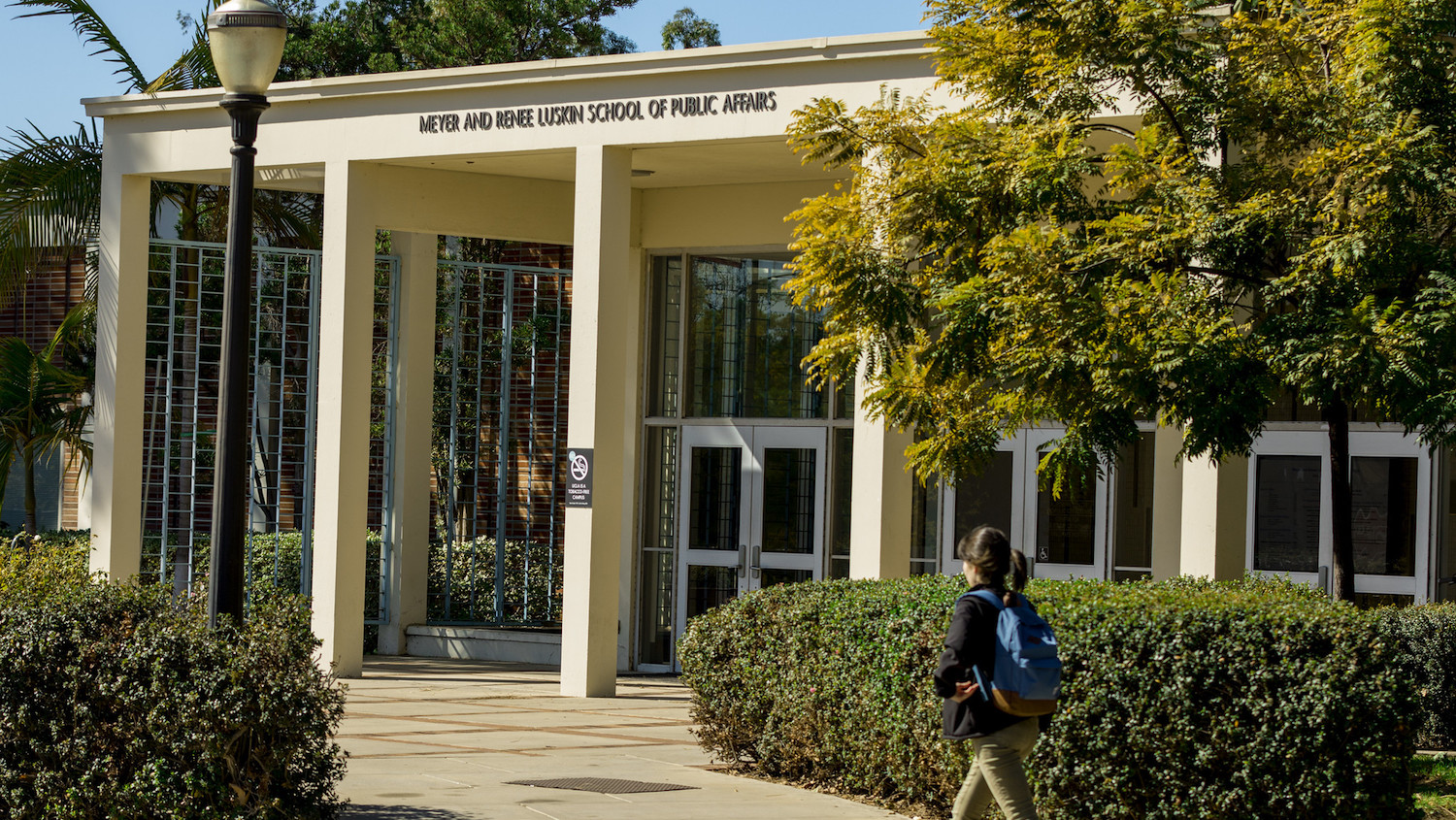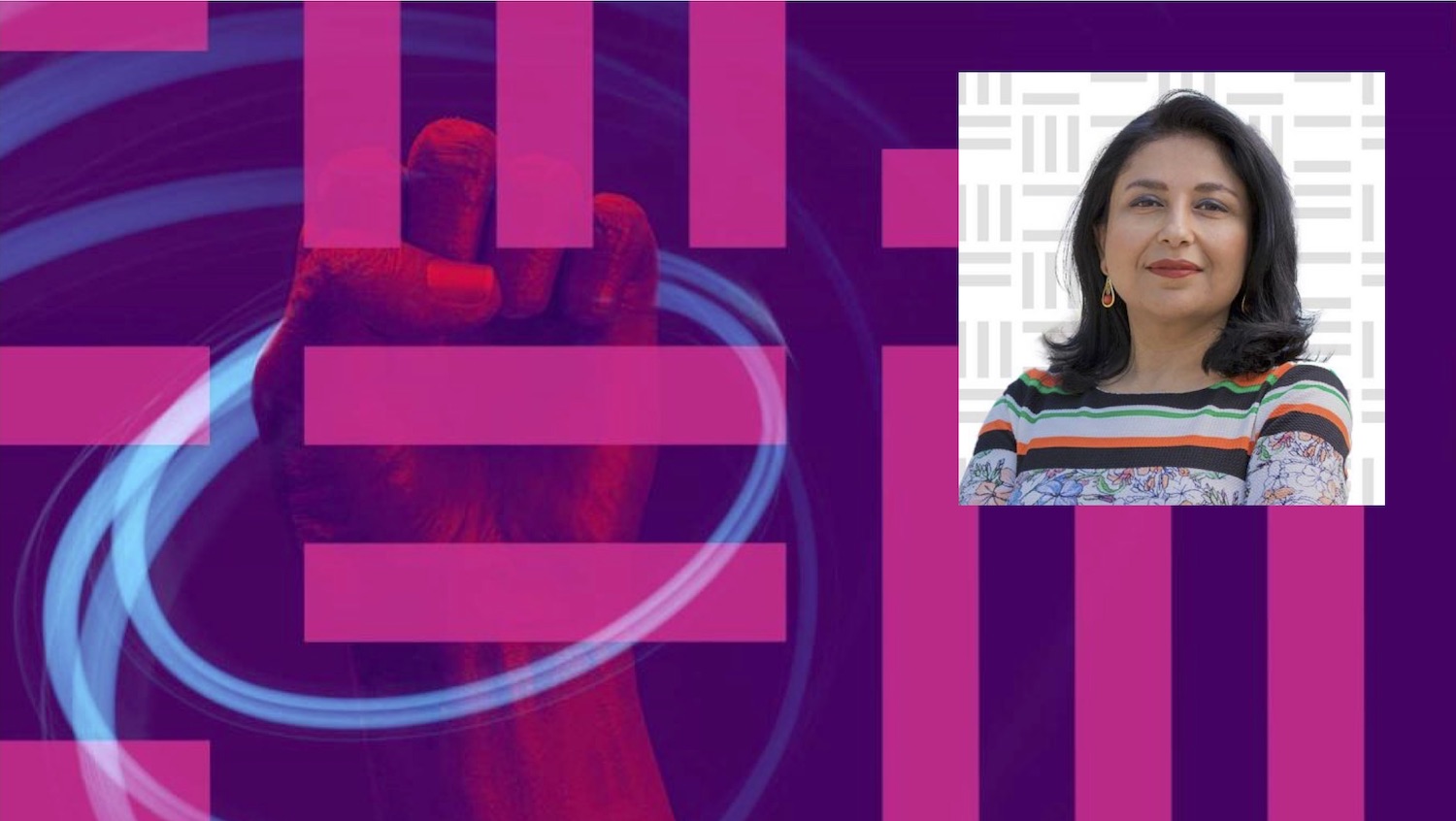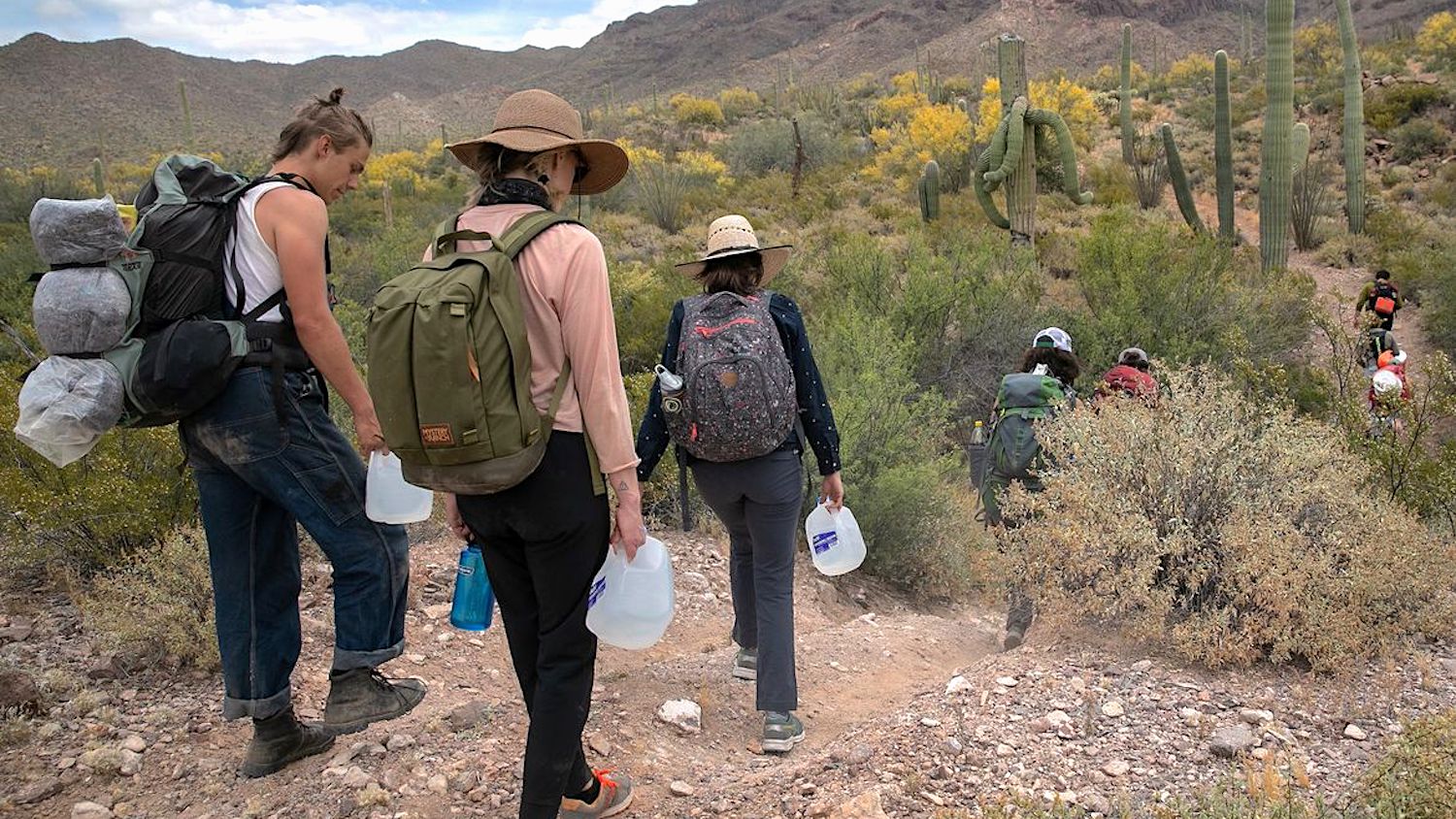Millions of Latinos at Risk of Job Displacement by Automation
The potential acceleration of job automation spurred by COVID-19 will disproportionately affect Latinos in U.S. service sector jobs, according to a new report from the Latino Policy and Politics Initiative at UCLA Luskin. The report calls on state and local officials to start planning now to implement programs to support and retrain these workers. Researchers looked at occupational data from the six states with the largest Latino populations and found an overrepresentation of Latinos in industries where jobs are more susceptible to automation, including construction, leisure and hospitality, agriculture, and wholesale or retail trade. More than 7.1 million Latinos, representing almost 40% of the Latino workforce in those six states — Arizona, California, Florida, Illinois, New York and Texas — are at high risk of being displaced by automation, the report shows. “As Latinos take a disproportionate financial hit from the COVID-19 crisis, now is a good time to focus on increasing training opportunities and to strengthen the social safety net to catch workers who are left behind,” said Rodrigo Dominguez-Villegas, the report’s author and director of research at the policy initiative. A failure to prepare Latinos for jobs in the digital economy and other growing sectors will come with economic repercussions to the U.S. by creating a shortage of skilled workers in an aging and shrinking labor force, the report says. The research will be used as a baseline for discussion at a convening this month of policymakers, industry leaders, training organizations and higher education administrators organized by the Aspen Institute’s Latinos and Society Program. — Eliza Moreno
Astor Briefs Congress on Social Work and Student Well-Being
Social Welfare Professor Ron Avi Astor appeared at a congressional briefing focused on how social workers can help provide for the safety and educational achievement of students in light of calls to remove police from public schools. Many U.S. schools are patrolled by safety officers yet have no counselors, nurses or social workers on staff, adding to inequities that are deeply felt by Black, Latino, Native American and rural communities, Astor said. He called for a holistic national plan that re-envisions the role of schools in providing key social services to families struggling to feed, house and provide health care to their children. “There are needs at a mass scale that we probably haven’t seen in our country since the Great Depression,” said Astor, citing a recent policy brief he co-authored. Astor urged policymakers, education professionals, social workers and scholars to work together on a master plan that considers these core questions: “What do want our schools to look like in our country? What kind of democracy do we want to have? Should the zip code of a child dictate the kind of resources and opportunities they have?” The Sept. 23 online briefing was sponsored by a broad coalition of national social work organizations in conjunction with the Congressional Social Work Caucus, chaired by Rep. Barbara Lee of California. “We’ve got to bring the power of social work back to the schools,” Lee said during the briefing. “It is a matter of justice, and social workers are known for fighting for justice for everyone, especially our children.”
Park Awarded Equitable Growth Research Grant
Assistant Professor of Public Policy R. Jisung Park was awarded a research grant by the Washington Center for Equitable Growth for a project investigating the impact of climate change on rising income inequality and declining labor market prospects in the United States. Park is one of 46 economists, postdoctoral scholars and other social scientists who received funding from the center this year to research the intersections between economic inequality and economic growth. Park’s award of $49,000 will support research into whether climate change exacerbates recent trends in economic inequality and will include recommendations for workplace adaptation and policy reforms. Growing evidence indicates that temperature stress may have significant impacts on cognitive performance, labor capacity and workplace safety, suggesting that extreme heat due to climate change may significantly reduce earnings and job quality for many low-skilled workers. Park, associate director of economic research at the UCLA Luskin Center for Innovation, will use administrative data on 11 million workplace injuries in California; injury and fatality data from the federal Office of Safety and Health Administration and the U.S. Bureau of Labor Statistics; and daily temperature variation data from the National Climatic Data Center. The Washington Center for Equitable Growth is a nonprofit research and grant-making organization dedicated to advancing policies that promote broad-based economic growth. The grant program aims to build a stronger bridge between academics and policymakers to bring relevant, accessible new research to the policymaking process.
Deans Respond to Government Attack on Critical Race Theory
UCLA Luskin Dean Gary Segura joined colleagues from three other University of California public affairs schools to defend the interdisciplinary field of critical race theory against attacks from the Trump Administration. “Becoming anti-racist is a core tenet of the American creed. … America is still trying to perfect itself, and scholars in our schools use multiple perspectives, including critical race theory, to understand racism and racial oppression in America,” said the statement signed by Segura and deans of the public policy schools at UC Berkeley, UC Riverside and UC San Diego. The statement came in response to a recent U.S. Office of Management and Budget memorandum calling for an end to training sessions for federal employees that draw on critical race theory, which the memo termed divisive, false, demeaning and un-American. The deans’ statement countered that exposure to critical race theory “helps our students have a deeper understanding of what is required for America to live up to its promise of equality for all.” Noting that many public affairs students go on to work in government, the deans said, “An understanding of the ongoing role of race in America is important for them to be successful public sector employees. We believe that critical race theory and other academic research helps them to develop this understanding.” Deans from UCLA Law and four other UC law schools issued a separate statement expressing deep distress at the Trump Administration’s attack on critical race theory.
Roy Awarded ‘Freedom Scholar’ Grant to Advance Social Justice
Professor Ananya Roy, founding director of the UCLA Luskin Institute on Inequality and Democracy, has been named a Freedom Scholar as part of a new philanthropic initiative to support progressive academics at the forefront of movements for economic and social justice. Marguerite Casey Foundation and Group Health Foundation launched the $3 million Freedom Scholars initiative to advance work in critical fields of research that are often underfunded or ignored. The 12 academics in the inaugural class of Freedom Scholars are leaders in abolitionist, Black, feminist, queer, radical and anti-colonialist studies. Each will receive $250,000 over two years. “These Freedom Scholars are shifting the balance of power to families and communities that have been historically excluded from the resources and benefits of society,” said Carmen Rojas, CEO and president of Marguerite Casey Foundation. “Support for their research, organizing and academic work is pivotal in this moment where there is a groundswell of support to hold our political and economic leaders accountable.” Roy, a professor of urban planning, social welfare and geography, holds the Meyer and Renee Luskin Chair in Inequality and Democracy. Her research has focused on urban transformations and land grabs, as well as global capital and predatory financialization, with a focus on poor people’s movements. The Freedom Scholar award, which will be administered through the Luskin Institute on Inequality and Democracy, is designed to advance “a new vision and new ideas for what it means for our society to be just, fair and free,” said Nichole June Maher, CEO of Group Health Foundation.
Report Rooted in Pandemic’s Unequal Impacts Proposes Sweeping Reforms to Advance Racial Justice in L.A.
A dramatic agenda for regional change is outlined in a new report that attacks systemic racism and lays out a roadmap for transformation centered in racial equity. “No Going Back: Together for an Equitable and Inclusive Los Angeles” offers 10 guiding principles on issues such as housing, economic justice, mental and physical health, youth and immigration. It includes dozens of policy recommendations that include:
- establishing high-speed internet as a civil right;
- equal access to services regardless of immigration status;
- a housing-for-all strategy to end homelessness in Los Angeles.
“Many of us have spent our careers enabling broken, racist systems, and this moment calls us to create something better,” said Miguel Santana, chair of the Committee for Greater LA, a diverse group of civic and community leaders who joined with a joint USC/UCLA research team, backed by local philanthropy, to address the racial disparities exposed by the COVID-19 pandemic and the killings of Ahmaud Arbery, Breonna Taylor and George Floyd. The report, written by Dean Gary Segura of the UCLA Luskin School of Public Affairs and Manuel Pastor of USC’s Equity Research Institute, seeks solutions that will advance racial equity, increase accountability and spark a broad civic conversation about L.A.’s future. “This is uncharted territory,” Segura said. “We can’t use the structures of the past as a basis for the future. We need new systems, better accountability and a clear vision of the Los Angeles that we want to become.”
Majority of Americans Oppose Criminalizing Humanitarian Aid Along Mexican Border
An overwhelming majority of Americans oppose the Trump administration’s practice of threatening people who provide humanitarian aid to undocumented immigrants at the U.S.-Mexico border with arrest and a possible 20-year prison sentence, according to a new UCLA policy brief. The brief, published by the Latino Policy and Politics Initiative (LPPI), cites a 2019 survey of 1,505 Americans that asked participants, “Do you agree or disagree that it should be a crime for people to offer humanitarian aid, such as water or first aid, to undocumented immigrants crossing the desert along the U.S.-Mexico border?” Eighty-seven percent of those surveyed said they disagreed — including 71% of Republicans — highlighting the unpopularity of the policy. “Our survey showed that an overwhelming number of Americans across political parties agree that no one should face jail time for being a good Samaritan,” said LPPI member Chris Zepeda-Millán, an associate professor of public policy who conducted the survey with Sophia Wallace of the University of Washington. The policy brief, authored by Zepeda-Millán and Olivia Marti, a Ph.D. student in UCLA’s political science department, recommends legislation that would halt current efforts to criminalize border relief and calls for an end to the destruction of humanitarian supplies by U.S. Border Patrol agents. Currently, the agency only counts fatalities discovered by its own agents; the UCLA report suggests that the fatality count also include bodies identified by local government officials, medical examiners and nongovernmental organizations. — Eliza Moreno

